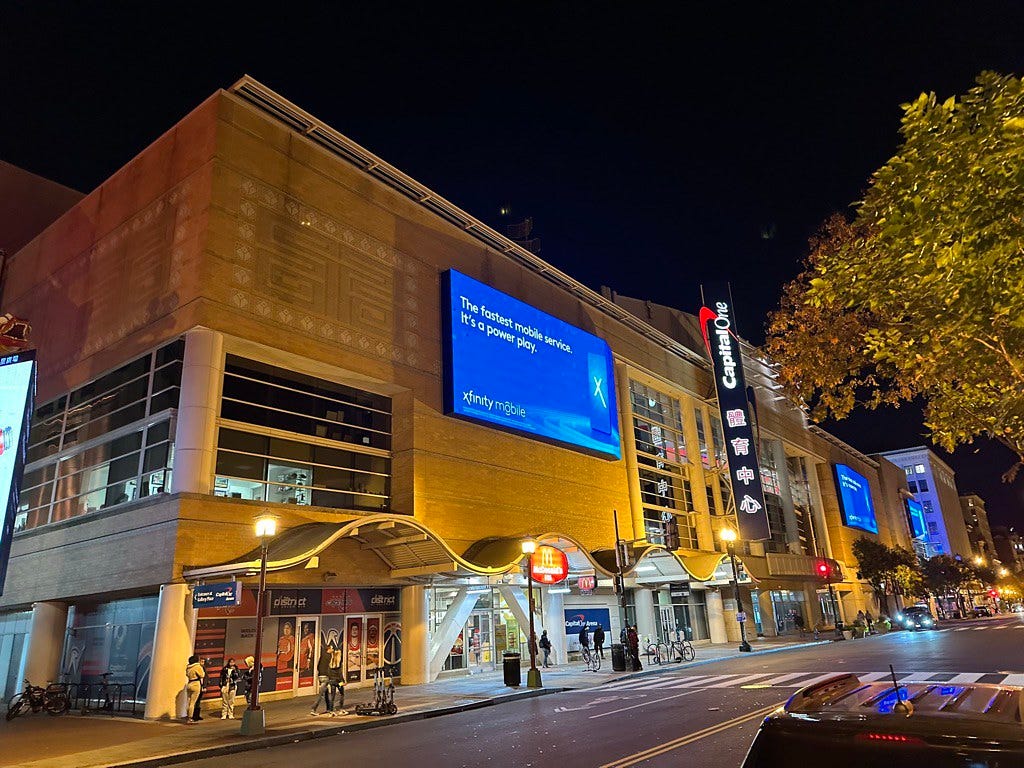Price of Omission: D.C. Is Suing StubHub Over Drip Pricing
The D.C. Attorney General alleged that the ticketing resale site has deceived millions of customers with junk fees.

by Yaseen al-Sheikh, More Perfect Union
If you've ever felt ripped off after buying a ticket on StubHub, you're not alone.
D.C. Attorney General Brian Schwalb filed a lawsuit this week accusing the ticketing resale website of deceiving customers. StubHub, Schwalb said, shows low prices at first glance before inflating the scope of final payment, by hiding a plethora of service and junk fees until the point of purchase.
The lawsuit says that this “classic bait and switch scheme,” known as drip pricing, directly violates the city’s Consumer Protection Procedures Act. Schwalb argues that StubHub ought to pay damages to their customers in Washington D.C. and end the practice.
Schwalb wrote in the lawsuit that drip-pricing is “a practice of advertising only part of a product’s price and then revealing other charges later as the consumer goes through the buying process,” and that it’s only after a customer has invested so much time and effort into the attempt to purchase tickets that the actual price is revealed.
The District of Columbia is one of the most profitable live event markets in the country. Since 2015, StubHub has pulled in more than $118 million in hidden fees on nearly 5 million tickets sold in Washington D.C. alone, the complaint said. The company raked in more than $1.4 billion in revenue last year and is reportedly preparing an initial public offering later this year, eyeing a valuation of around $16.5 billion, according to CNBC.
Schwalb also alleges that StubHub isn’t being honest about the nature of its final prices, with “service fees” that are pegged at a percentage of the price of the ticket, which can end up totaling upwards of 40% of a ticket’s cost. StubHub then, on top of all of this, uses arbitrary countdown clocks to create a false feeling of urgency for the customer to purchase tickets whose actual prices are hidden from them until the final step of the process.
All of these changes came into effect in late 2015 after the company conducted real-time tests on customers and concluded that they were more likely to purchase pricier sets of tickets if the fees were not displayed up-front.
In a statement, StubHub deputy general counsel John Lawrence said that the company’s “user experience is consistent with the law, our competitors’ practices, and the broader e-commerce sector.”
Earlier this year, the federal Department of Justice filed an antitrust lawsuit against Live Nation Entertainment, the parent company of Ticketmaster, asking for it to be broken up over its illegal monopolization of the primary market for ticketing and producing live events and entertainment. Attorney General Schwalb’s office was one of more than 40 bipartisan state-level offices to sign onto that antitrust lawsuit.
The Federal Trade Commission has proposed a ban on junk fees, and last year California became the first state in the country to outlaw such hidden fees. Minnesota joined them in May, and a number of other states have also considered junk fee bans in the past few years.
As scrutiny over the ticketing industry has increased, Ticketmaster and companies like StubHub and SeatGeek have pinned blame for exorbitant prices on each other. There’s evidence that this ticket price inflation dynamic has depressed turnout for live events over the last two years, with nearly 55 percent of adults saying that they were less likely to purchase tickets after the controversy surrounding Ticketmaster and resale prices for Taylor Swift’s Eras Tour in 2022. In a poll published in May, about half of all those who have used StubHub in the past say they would not use it again.
“Hidden fees in the ticketing industry have truly gotten out of control,” National Consumers League CEO Sally Greenberg said in a statement released by Schwalb’s office in support of the lawsuit. “The price that is advertised is the price that we should pay—full stop.”
